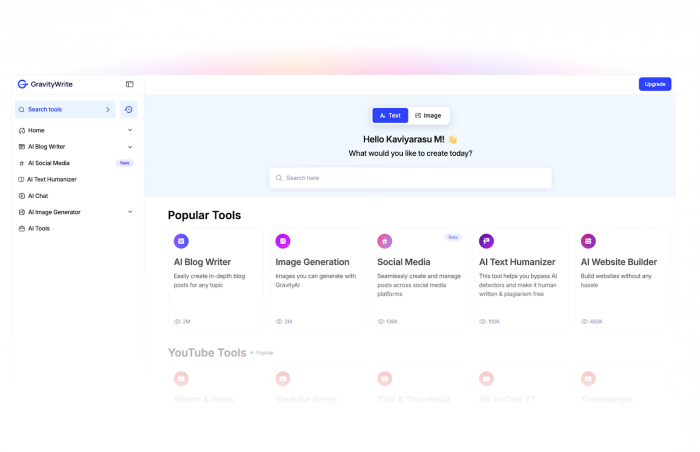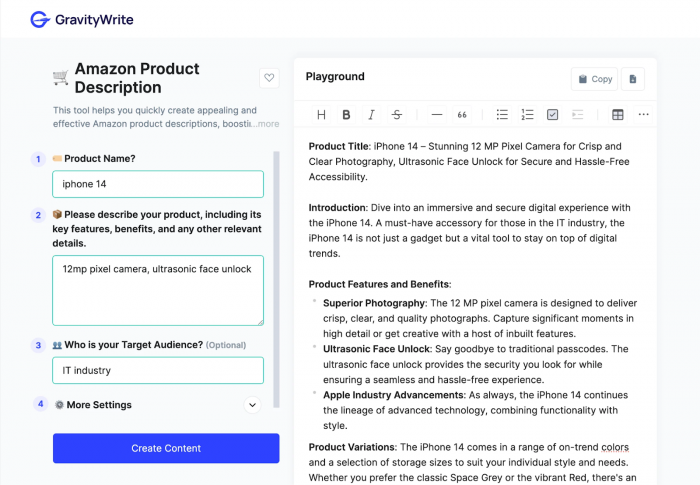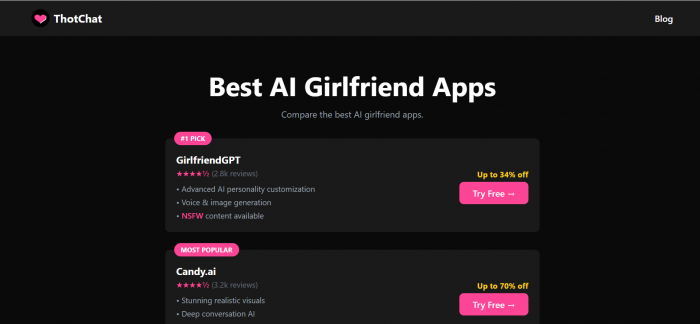On This Page
- GravityWrite: The Acquisition and Research Advantage
- One-Click Content Strategy
- SEO Acquisition Tools
- The Production Core: Quality, SEO, and the AI Humanizer
- Long-Form Quality and Consistency
- The AI Humanizer and Authenticity
- The Scaling Challenge: Pricing, Bulk Output, and Integrations
- The Credit-Based Pricing Model
- Pricing Overview
- Workflow Gaps: The Integration Problem
- User Sentiment: The Verdict on Ease of Use and Quality
- Final Recommendation: Is GravityWrite Right for Your Business?
- Final Recommendation Table
In content marketing, speed and SEO compliance are the two pressure points that determine whether a piece of content performs. GravityWrite leans heavily into this need, branding itself as an all-in-one platform with more than 250 AI tools that cover writing, SEO optimization, social media content, and even image generation. Instead of relying on a stack of scattered apps, the platform promises a consolidated workflow that takes creators from idea to publish-ready content in minutes.

This review looks at GravityWrite from a workflow perspective. It breaks down its performance across three stages every content team cares about: research and acquisition, production quality, and scalability. It also examines user sentiment and pricing to determine whether the platform delivers real ROI for freelancers, agencies, and marketing teams in 2026.
GravityWrite: The Acquisition and Research Advantage
GravityWrite performs exceptionally well during the research and planning phase. The platform minimizes early-stage friction by turning scattered inputs into complete content strategies.
One-Click Content Strategy
The standout here is the One-Click Content Package. Users can feed the system a business name or website URL and instantly receive a branded, content-aligned package including website copy, email content, social posts, and video concepts. Instead of crafting prompts or digging through analytics, the tool handles ideation automatically. For many small teams, this becomes a huge time-saver because it eliminates the brainstorming choke point.
SEO Acquisition Tools

GravityWrite includes tools that assess competitor structure and produce outlines based on what’s already ranking. The system automatically recommends relevant H2/H3 hierarchies, topic clusters, and keywords commonly found in high-performing pages. This gives users a solid SEO foundation without needing external research tools.
Overall, GravityWrite’s research features significantly reduce the time required to move from idea to first draft.
The Production Core: Quality, SEO, and the AI Humanizer
Once you move from research to actual production, the strength of GravityWrite’s writing engine becomes the deciding factor.

Long-Form Quality and Consistency
GravityWrite is positioned heavily as a long-form generator, capable of producing articles up to roughly 5,000 words. For general topics, the writing is clear, structured, and reasonably detailed.
Where issues arise is in consistency. Some users report repetition in articles above 1,500 words, especially with technical or highly specialized topics. While the drafts are usable, most long-form pieces still require a final human edit to catch redundancies or shallow sections.
The AI Humanizer and Authenticity

The Humanizer tool tackles the universal concern about AI-generated content sounding robotic or being flagged by detectors. Users consistently highlight this feature as one of GravityWrite’s strongest. It smooths awkward phrasing, enhances flow, and creates more human-sounding narratives.
Its strength is reinforced by user data showing noticeable SEO improvements within the first two months of publishing Humanizer-refined content. This suggests the system strikes a workable balance between speed and authenticity.
The Scaling Challenge: Pricing, Bulk Output, and Integrations
For freelancers and agencies, the real test isn’t whether the tool produces one article. It’s whether the platform remains efficient and affordable at scale.
The Credit-Based Pricing Model
GravityWrite’s pricing is built on a flexible credit system that gives more value at the lower tiers than most competitors. It’s accessible enough for beginners but scalable enough for larger teams.
Pricing Overview
| Plan | Approx Monthly Cost (Annual Billing) | Credits / Word Output | Who It’s For |
|---|---|---|---|
| Free | 0 | Roughly 1,000 words per month | Testing the interface |
| Plus (Best Value) | Around 8 | Roughly 75k–100k words | Freelancers and small creators |
| Pro | Around 49 | Roughly 250k–300k words | Agencies and high-volume teams |
According to usage data, a strong majority of Plus plan users report recovering their subscription cost within the first month, mainly due to the low entry price combined with high content output.
Workflow Gaps: The Integration Problem
GravityWrite’s largest drawback is its integration ecosystem. Despite branding itself as an all-in-one workflow replacement, it lacks direct publishing integrations with everyday tools like Google Docs or WordPress. That forces users into a manual copy-paste workflow, which can feel inefficient at scale.
There is a WordPress AI Website Builder Plugin available, but this tool is designed more for automated site creation than everyday publishing. It solves part of the problem but doesn’t fully replace native integration.
User Sentiment: The Verdict on Ease of Use and Quality
User reviews paint a mostly positive picture (G2), especially regarding ease of use and the sheer number of features available at a low cost. GravityWrite’s dashboard is simple, clean, and beginner-friendly, making it accessible even to people who have never used an AI writing tool before.
Users consistently highlight:
- Fast onboarding
- A clean, simple interface
- The convenience of having writing, SEO, and image tools in one place
- Strong performance for blogs, social posts, product descriptions, and ad copy
The most common criticism is the integration gap, followed by occasional long-form repetition.
Final Recommendation: Is GravityWrite Right for Your Business?
GravityWrite succeeds in offering a powerful, consolidated platform that delivers a strong ROI for creators who prioritize speed, SEO alignment, and affordability. It’s especially effective for users who want a high-volume writer paired with a tool that can humanize and refine output without requiring multiple apps.
Final Recommendation Table
| Recommendation | Best Fit | Why |
|---|---|---|
| Choose GravityWrite (Plus or Pro Plan) | Freelancers, bloggers, SMBs | High output, low cost, strong SEO structure, excellent Humanizer |
| Use alternatives instead | Teams needing direct CMS integrations or advanced SEO performance tools | Competitors offer stronger technical SEO support and better publishing automation |
Bottom line: GravityWrite is one of the best budget-friendly choices for creators who want speed, volume, and SEO-ready drafts without juggling a dozen tools. It’s not perfect, but its value per dollar makes it a standout option for most content workflows in 2026.
Post Comment
Be the first to post comment!





